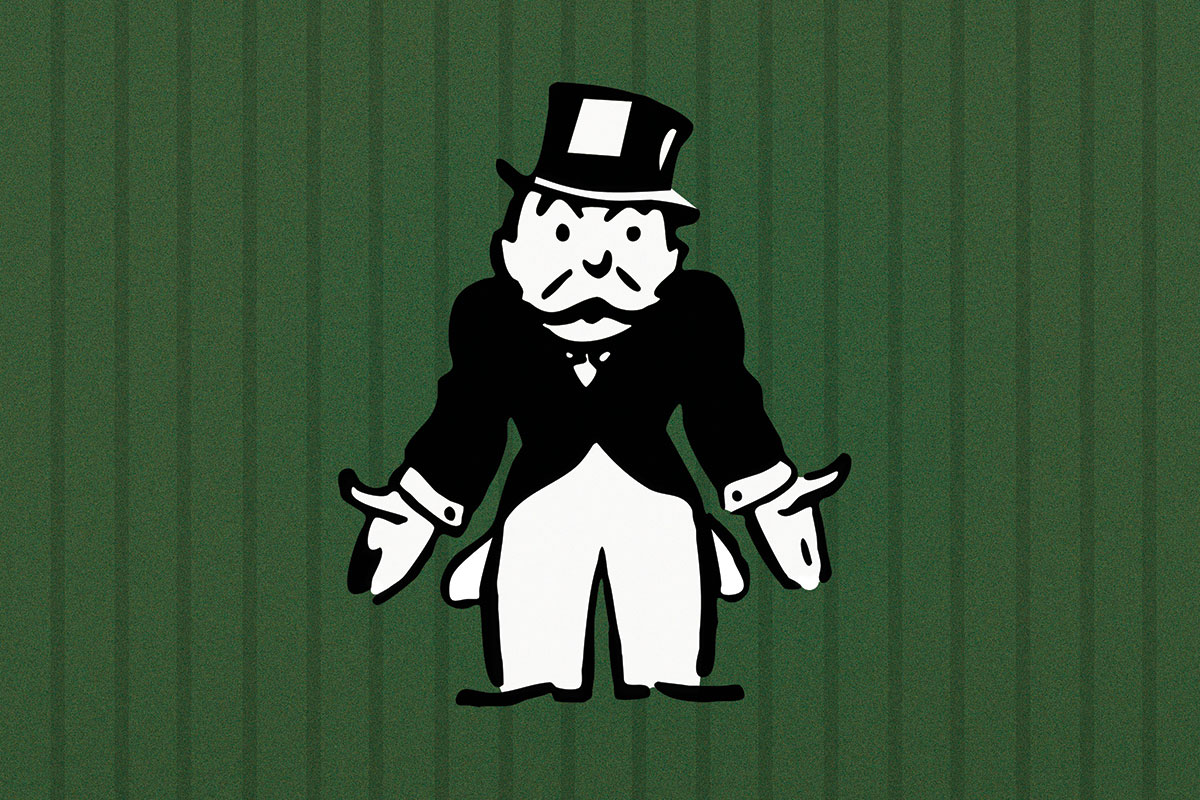A traditional villain wreaks havoc on society by breaking the rules. But occasionally, a law is disruptive enough that all an aspiring antagonist must do is follow it.
A recent exposé by non-profit newsroom ProPublica revealed a well-known secret: that rich people in the United States do not pay nearly enough taxes. The report, which analyzed over 15 years of Internal Revenue Service (IRS) data, found that the 25 wealthiest Americans paid an average of 3.4 percent of their net worth increase in tax between 2014 and 2018. Meanwhile, the typical middle-class household was levied 95.3 percent of their increased wealth. The richest Americans have plenty of financial laws and instruments at their disposal to circumvent taxation, most of them perfectly legitimate. Primarily, growth in the value of investments in stocks, property, or other assets — which constitutes almost all of billionaires’ wealth — is not considered taxable. Misusing charitable foundations and pension funds also ensures that a bulk of their wealth is never taxed. These practices continue to deepen American economic inequality, which reached a 50-year high in 2019.
America’s tax system was intended to be progressive and require the most from its wealthiest citizens. However, a combination of legislative obsolescence, financial sleight-of-hand, and philanthropic deceit are the smoke and mirrors behind which the richest Americans shirk their legal, and arguably moral, responsibility. Growing inequality also undermines democracy in a capitalistic system by assigning wildly differing weights to the voices of various socioeconomic groups.
The stock market’s meteoric rise in the past decade has been remarkable. Since 2009, the NASDAQ stock exchange value has increased by over 750 percent. But average Americans would be forgiven for not noticing. As much as 84 percent of all stock is owned by the richest decile of Americans, meaning that other shareholders would likely not have had enough market exposure to amass great fortunes.
While stocks entrench existing economic hierarchies, non-taxation also eliminates the potential social gain from its growth. Stock dividends are currently taxed, leading to the misconception that their taxes are merely deferred to a later date. This perspective ignores the fact that assets like stocks and real estate don’t generate value solely on sale. Elon Musk held 57.7 billion dollars worth of shares last year as collateral for personal loans. Major shareholders can thereby generate immense wealth without having to contribute a penny to the exchequer.
Wealth can also be sealed within tax-free charitable trusts. Many entrepreneurs make highly-publicized announcements donating billions of dollars that are sometimes never heard of again. Laws surrounding nonprofits in America do not require the disclosure of any financial information, allowing the foundations to hypothetically be used as tax-free bank accounts without impunity.
Skeptics of this critique will list the many research initiatives and philanthropic projects that organizations such as the Bill and Melinda Gates Foundation and the Chan Zuckerberg Initiative have publicly funded. They will also point out that such a tax has failed in various European countries.
These gripes are all symptomatic of America’s prevailing and deep-rooted fear of taxes. For instance, the “Wealth Tax” proposed by Massachusetts Senator Elizabeth Warren and Vermont Senator Bernie Sanders was often dismissed as a “foolish” and “socialist” endeavor, even by those who supported progressive taxes. It is true that wealth taxes have largely been abandoned in Europe after an administrative debacle. But the issue was in implementation, not principle. Each country struggled to enforce their local wealth tax due to the free movement across the European Union. The United States would have no such troubles, as all Americans globally report taxes to the IRS.
Others claim that businesspeople are additionally burdened by corporate taxes and pay their fair share. That is simply untrue. Under a misguided wave of Reaganomics-inspired exemptions and cuts, corporate tax revenue has been falling steadily for decades. America is now left in a position where corporations and their heads are being taxed at a rate comically lower than citizens living paycheck to paycheck: a reality that should receive equal bipartisan condemnation. Of course, there are those who will scoff at the very notion that the public is entitled to anyone’s hard-earned wealth, viewing a wealth tax as a penitence for being successful. This intense individualism finds its roots in the “American Dream” myth. Whatever your situation, you have earned it and owe no debt of gratitude to society, a view characterized by its disturbing lack of empathy or recognition of privilege and the structural barriers that prevent success for some groups.
Although any loss of equality threatens democracy, economic inequity is particularly insidious. Our capitalist world implicitly assigns a dollar value to the opinions and interests of each individual. As such, growing inequality would mean decreasing relevance for the poorer class. Since wealth divides have also historically been drawn along racial lines, this also would lead to further disenfranchisement of minority groups. In principle, taxes are the subscription fee to exist in a society and patronize its infrastructure and institutions. In reality, they help mitigate the ever-widening economic chasm and help fund government programs that are disproportionately utilized by the poor. The United States government must be careful that their inability to hold their richest citizens accountable to basic responsibilities does not irreparably damage American democracy in the long term.

